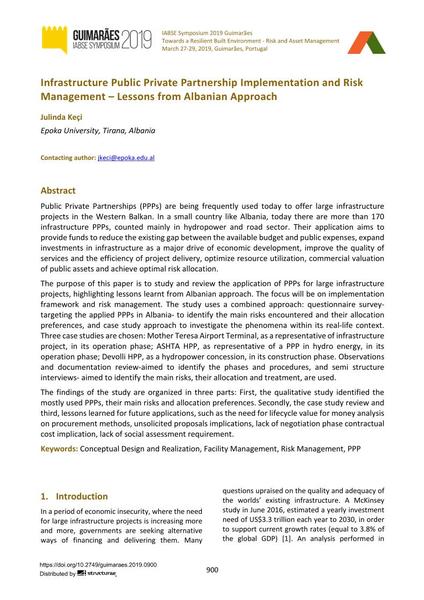|
Abstrait:
|
Public Private Partnerships (PPPs) are being frequently used today to offer large infrastructure projects in the Western Balkan. In a small country like Albania, today there are more than 170 infrastructure PPPs, counted mainly in hydropower and road sector. Their application aims to provide funds to reduce the existing gap between the available budget and public expenses, expand investments in infrastructure as a major drive of economic development, improve the quality of services and the efficiency of project delivery, optimize resource utilization, commercial valuation of public assets and achieve optimal risk allocation. The purpose of this paper is to study and review the application of PPPs for large infrastructure projects, highlighting lessons learnt from Albanian approach. The focus will be on implementation framework and risk management. The study uses a combined approach: questionnaire survey- targeting the applied PPPs in Albania- to identify the main risks encountered and their allocation preferences, and case study approach to investigate the phenomena within its real-life context. Three case studies are chosen: Mother Teresa Airport Terminal, as a representative of infrastructure project, in its operation phase; ASHTA HPP, as representative of a PPP in hydro energy, in its operation phase; Devolli HPP, as a hydropower concession, in its construction phase. Observations and documentation review-aimed to identify the phases and procedures, and semi structure interviews- aimed to identify the main risks, their allocation and treatment, are used. The findings of the study are organized in three parts: First, the qualitative study identified the mostly used PPPs, their main risks and allocation preferences. Secondly, the case study review and third, lessons learned for future applications, such as the need for lifecycle value for money analysis on procurement methods, unsolicited proposals implications, lack of negotiation phase contractual cost implication, lack of social assessment requirement.
|

